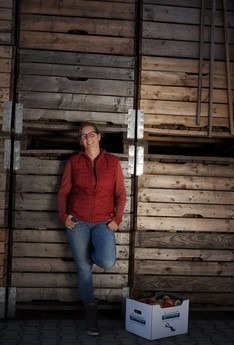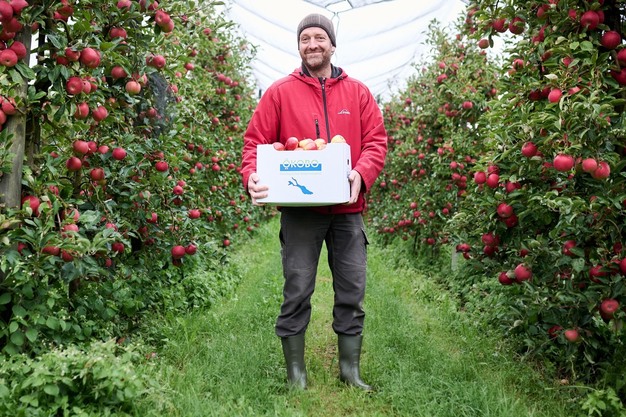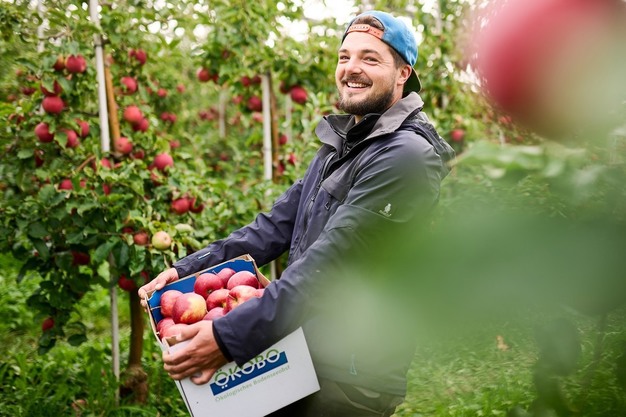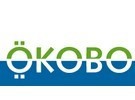
The organic apple industry in the Lake Constance district can look back on a successful start to the season. "The autumn produce was easily sold and the last batches of the 2024 harvest are now being stored in calendar week 46. There have only been minimal losses due to scab, but compared to the previous year, we have seen a slight increase in the harvest for almost all varieties. Apart from increased rainfall during the primary season and around Pentecost, we have been spared serious weather conditions such as hail or frost and the like this year," sums up Birgit Gutberlett, Managing Director of ÖKOBO GmbH (on the right in the picture). The company, based in Meckenbeuren, is primarily dedicated to the cultivation and distribution of organic pome fruit from regional cultivation and supplies the organic food trade. "We were able to offer the last old-crop goods (including Idared, Jonagold, Jonagored, Fuji and Red Prince) at Pentecost, after which there was a small gap, but this was easily filled with imported goods from Austria and Italy. The first early apples, such as Deljonca and Collina, were already available at the beginning of August. Santana marked the start of the main harvest on August 20, followed by Elstar just five days later."
Minimal price increase
In terms of marketing, ÖKOBO GmbH can look back on a good start to the season. "Volumes and qualities have been satisfactory so far. For the early varieties, the switch to the first goods from CA storage will take place in calendar week 45. Prices are stable and within the group, people are generally quite satisfied with the current producer prices. In relation to this, costs have only increased minimally after the strong price increase last year," explains Gutberlett.
Demand in the first few months of the new season has also been encouraging. "There have been lively promotions with autumn goods in the organic food trade. In November and December, apples are traditionally less in focus and further promotions will not take place again until the turn of the year." According to Gutberlett, inflation and the reduction in purchasing power are less noticeable in sales. "I believe that many consumers are finding it tighter anyway. However, those who have always bought organic out of conviction will continue to do so in my opinion."

Topaz and Natyra on the rise, Elstar on the decline
At the variety level, a few developments can be observed at the moment, continues Gutberlett. "Elstar tends to be grown less, which is primarily due to climate change and the often hot August. Elstar should be sold out by February because the variety doesn't keep well here and we then have to repeatedly accept correspondingly high losses starting in February/March, although we now also dive the variety. Meanwhile, we have seen a number of increases in Topaz and Natyra, both in terms of area and sales volume. In particular, the young consumer group is showing a strong preference for these varieties, while Elstar is hardly being noticed at all, as it is too soft for this consumer group. Furthermore, the new Bloss variety is also doing very well with consumers, but there are still many uncertainties regarding the distribution licenses."

Photo credit: ÖKOBO GmbH
For more information:
Birgit Gutberlett
ÖKOBO GmbH
Ökologisches Bodenseeobst
Eckener Str. 34
88074 Meckenbeuren
Telephone 07542 / 9408754
Fax 07542 / 9408753
[email protected]
www.oekobo.de
